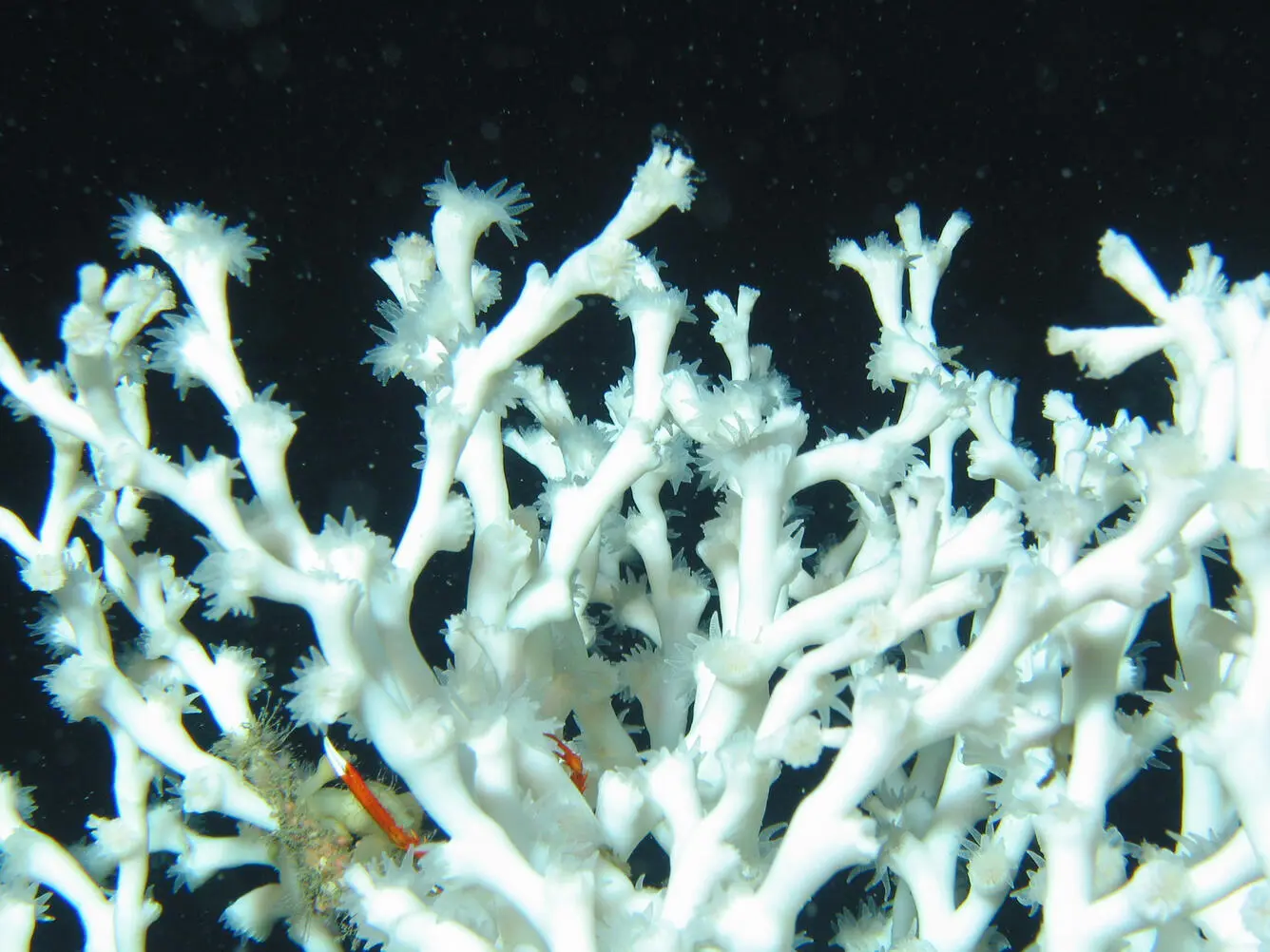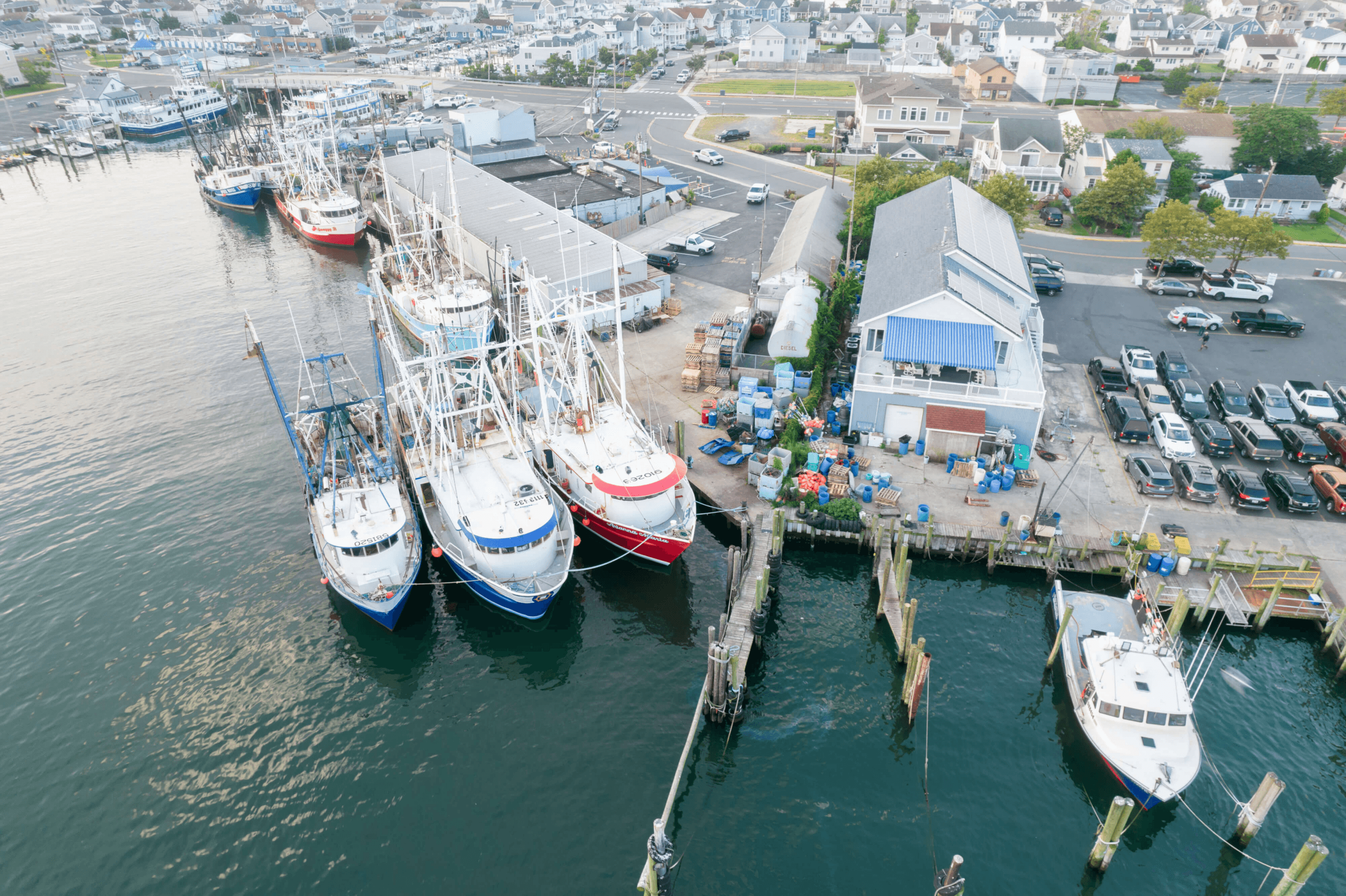Deep-Sea Corals
Deep-sea corals are cold-water ecosystems that thrive without sunlight, providing vital habitats for diverse marine species.
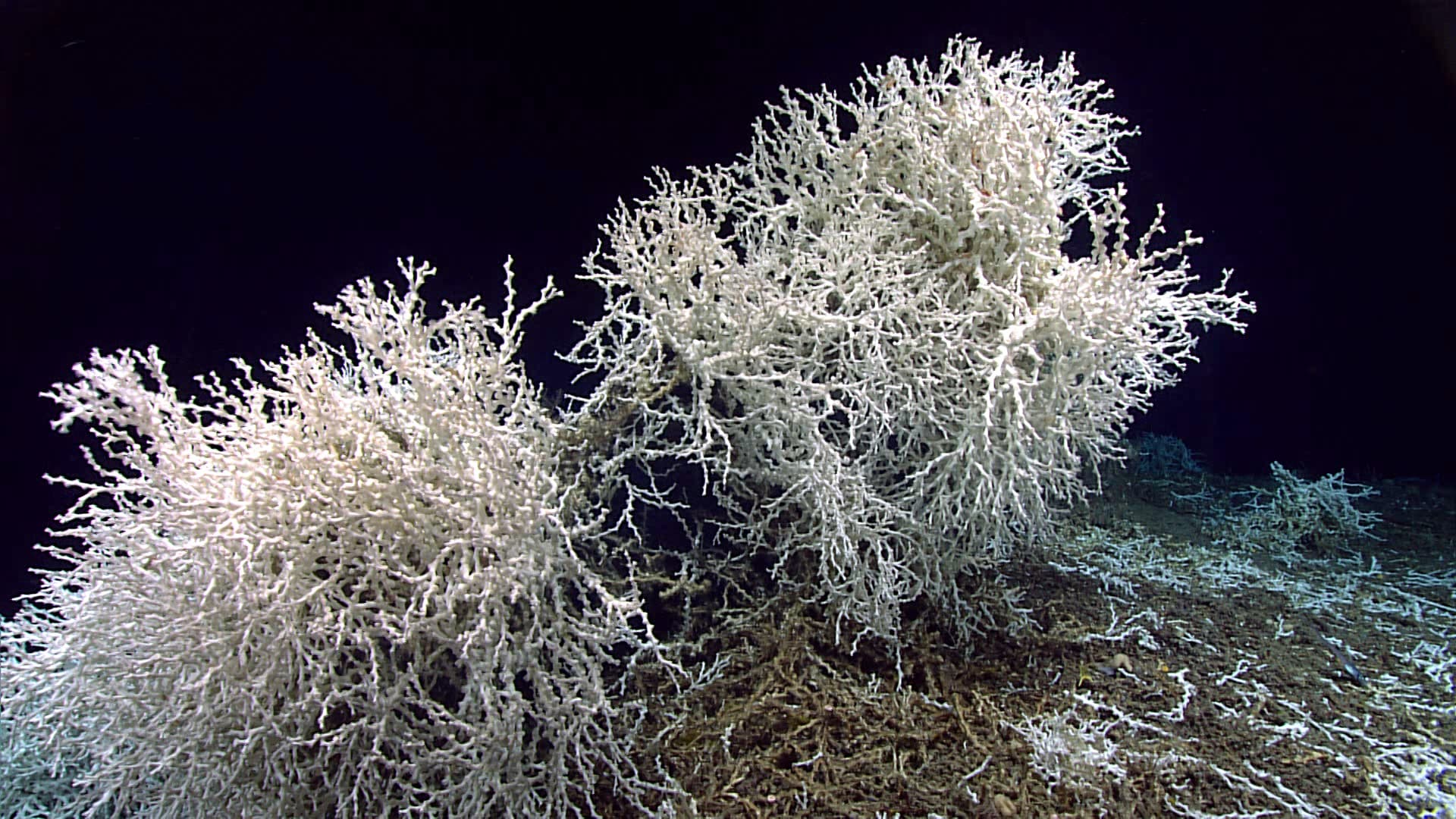
While most people think of shallow water reefs when they think of corals, the deep-sea hosts an expansive habitat of corals far beneath the surface. These cold-water coral reefs can support a diversity of life and form important fishery habitat and nursery grounds.
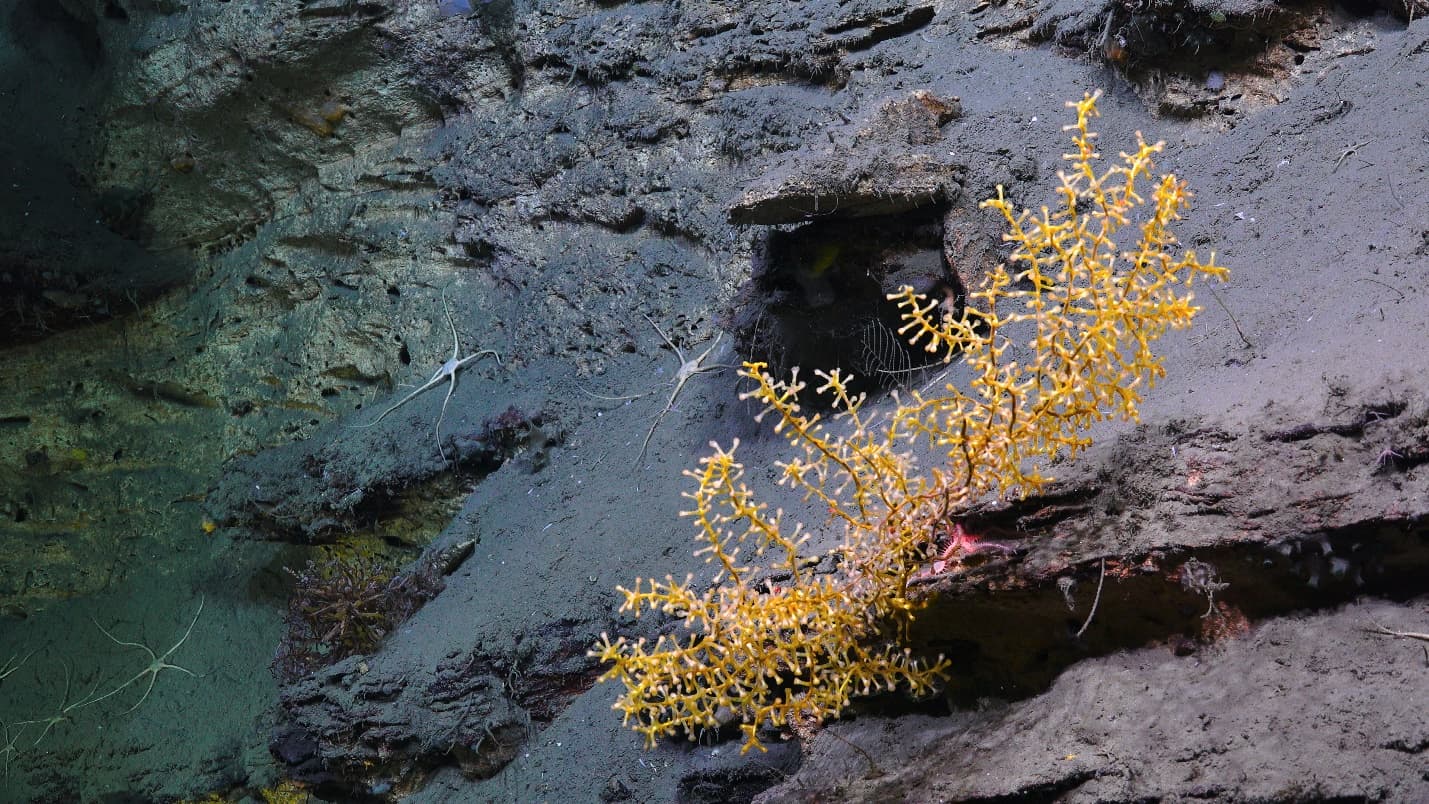
Deep-sea surveys conducted by NOAA from 2012-2015 in the Mid-Atlantic, discovered an abundance of gorgonian sea fans and bamboo corals. In January of 2017, the new Frank R. Lautenberg Deep-Sea Coral Protection Area was created, safeguarding approximately 40,000 square miles of deep-sea coral habitat offshore from New York to Virginia. This area hosts a diversity of cold-water corals that are now protected from many types of commercial bottom fishing gear.
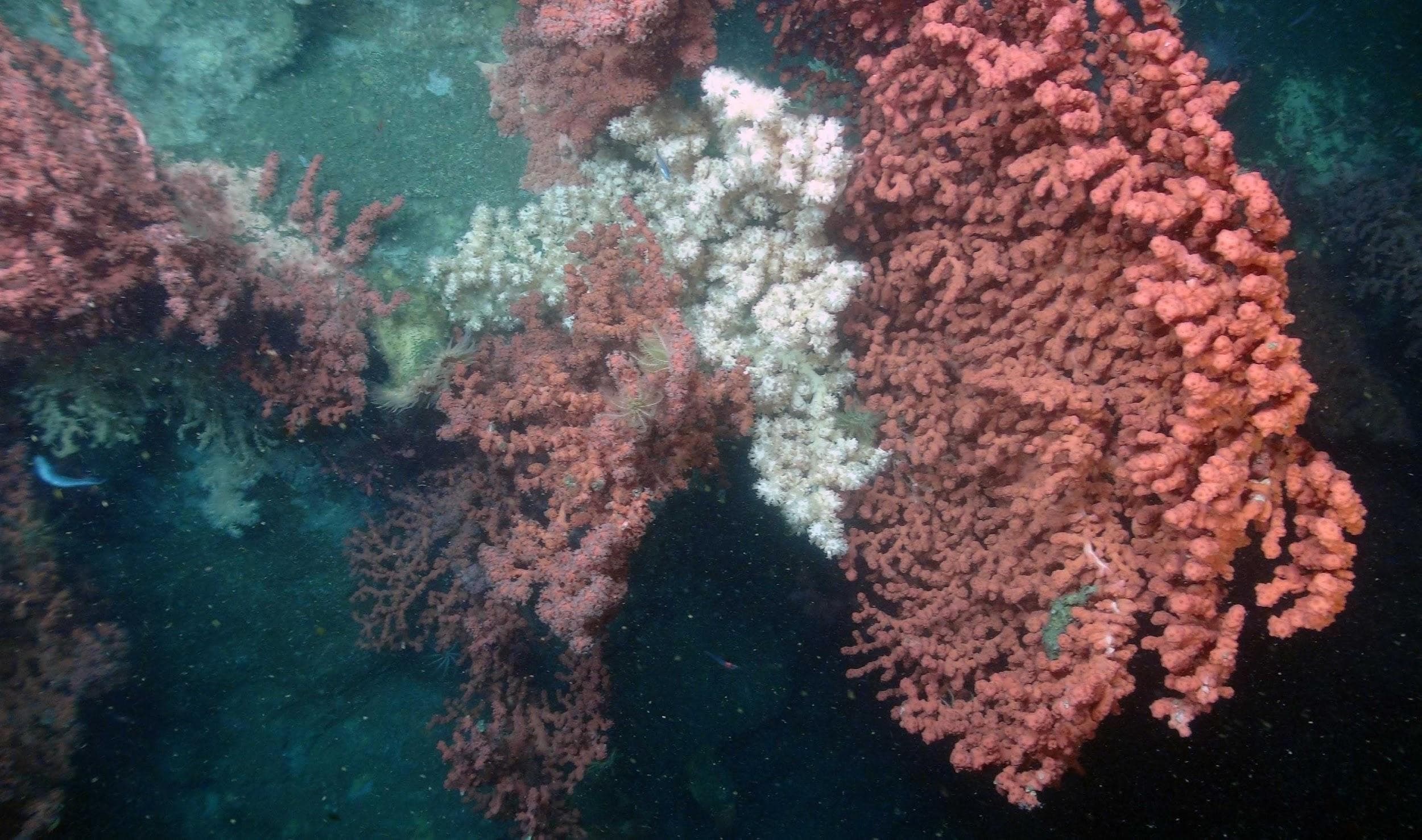
There have been few conclusive studies on the effects of acidification on deep-sea corals and effects often vary by species. While some research indicates that acidification may negatively impact cold-water stony corals, deep-sea explorations have observed resilience of scleractinian corals exposed to acidic conditions (aragonite saturation Ω < 1) (Thresher et al., 2011). The mechanisms enabling them to thrive despite unfavorable calcification conditions remain mysterious. However, the capacity of deep-sea corals to alter their internal carbonate chemistry in favor of calcification has been proposed as a plausible explanation.
While there is contradictory evidence regarding the potential consequences of future ocean acidification levels on deep-sea corals, there is widespread agreement concerning its probable adverse effects. Acidification is expected to reduce the concentration of dissolved minerals needed for corals to make their skeletons, making it harder for corals to grow and repair themselves. Moreover, their slow growth and limited ability to recover make them particularly vulnerable to human activities such as bottom trawling, seabed mining, cable and pipe laying, and mineral, oil, and gas exploration.
